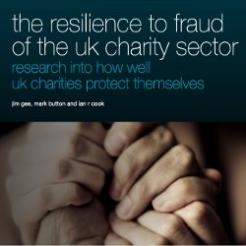Unveiling the UK's first research study into the resilience of the UK Charity Sector to fraud, PKF's director of counter fraud services, Jim Gee, has warned of the possibility of "serious reputational and financial damage" to charities under the Big Society agenda.
The Resilience to Fraud of the UK Charity Sector report revealed that the charity sector is under-prepared for fraud, with just shy of 60 per cent lacking a clear policy to recover fraud losses and with less than 19 per cent of charities ensuring counter-fraud staff were professionally trained.
But the situation could worsen, Gee warned, under the coalition government's Big Society remit:
"Fraud is pernicious wherever it takes place. In the charitable sector it is completely unacceptable because it deprives charitable purpose of the funding that they desperately need.
"Unless rapid improvements are made, I foresee some charities suffering serious reputational and financial damage, especially as they take on more functions as part of the 'Big Society'," he said.
The Resilience to Fraud of the UK Charity Sector report was prepared by the accountancy firm with the Centre for Counter Fraud Studies at University of Portsmouth, analysing survey results from 83 charities that answered 29 questions.
The results showed that charities performed worst of all sectors in having a clear objective of reducing losses to fraud (28 per cent) and reviewing the effectiveness of counter fraud work (23 per cent). The sector also performed worst at using losses estimates to make judgements about how much to invest in countering fraud, ensuring counter fraud staff are profecssionally trained, and monitoring the development of anti-fraud cultures.
Conversely, the study found that charities performed best in including fraud and corruption risks in their charity's risk register (84.34 per cent) and 73.49 per cent discussed counter fraud and corruption at board level.
The National Fraud Authority released figures in January presenting an estimated loss to the charity sector of £1.3bn per annum due to fraud.









